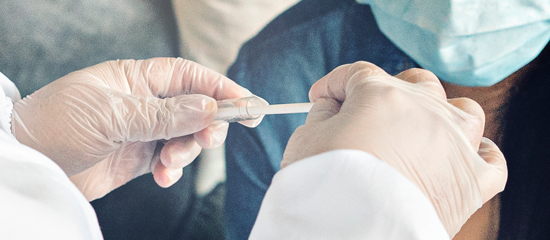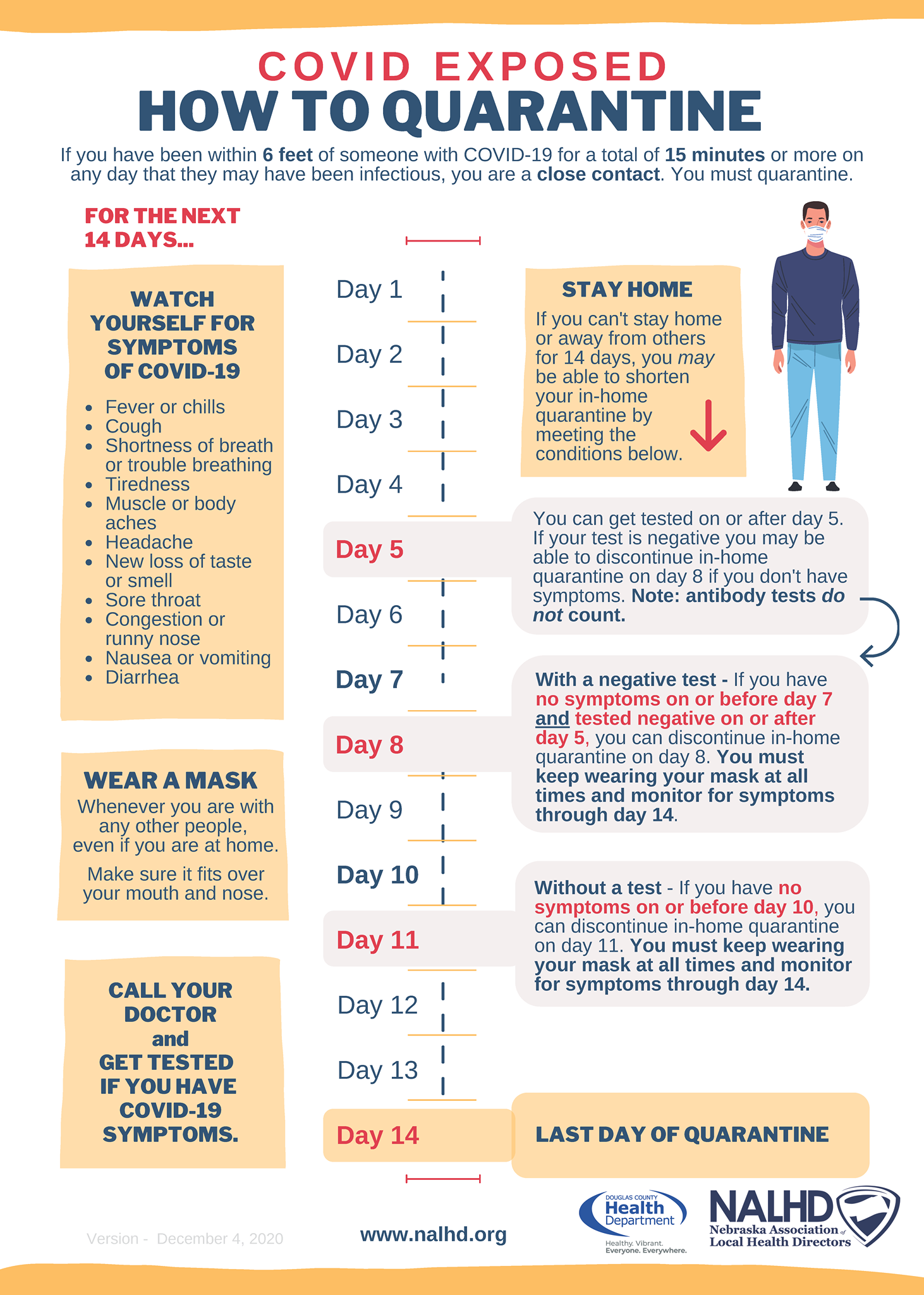
There are two reasons you should get a COVID-19 test: if you've had close contact with someone who has COVID-19 or if you have COVID-19 symptoms. However, the timing matters. Testing too early for COVID-19 can mean a missed infection. That's because it takes time for the virus to multiply enough to be detected.
Once you know you need a test, you should isolate at home until the test is completed and results have returned, which will determine how much longer you need to isolate. You don't want to spread COVID-19 without realizing you're infectious.
Close contact with COVID-19
If you've had close contact with someone infected with COVID-19, we recommend a PCR test (not all rapid tests are PCR). Wait for at least five days after you've been exposed to get tested.
Even if you feel well at first, you could have COVID-19. It can take 2 to 14 days to show signs of illness, so we may not know for up to 14 days if you have COVID-19. Self-quarantine makes sure that you do not pass on the infection to other people
The Centers for Disease Control and Prevention defines close contact as:
- You were within 6 feet of someone who has COVID-19 for a total of 15 minutes or more
- You provided care at home to someone who is sick with COVID-19
- You had direct physical contact with the person (hugged or kissed them)
- You shared eating or drinking utensils
- They sneezed, coughed, or somehow got respiratory droplets on you
Symptoms of COVID-19
If you have symptoms of COVID-19, the virus has already multiplied and can be detected by a test. As soon as you experience any COVID-19 symptoms, you should get a PCR test as soon as you can.
Symptoms of COVID-19 include:
- Fever
- Cough
- Shortness of breath or trouble breathing
- Loss of smell or loss of taste
- Chills
- Muscle aches
- Sore throat
- Headache
- Diarrhea
- Nausea/vomiting
- Runny nose
Here's what to do if your test is positive for COVID-19.




